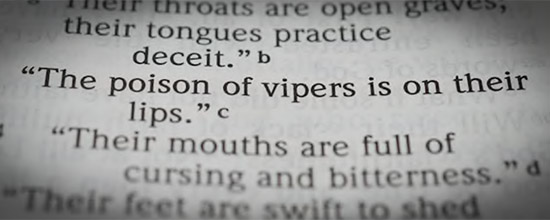
The headline of this blog is the subtitle of a book that forms the springboard for my reflection now.The late, notorious atheist Christopher Hitchens published a best-seller titled god Is Not Great: How Religion Poisons Everything.
The book is well written, but his case is very poorly argued. The subtitle is far too ambitious thus making proof of the thesis well-nigh impossible. Philosophically, the term ‘everything’ in the subtitle means nothing at all escapes the poisonous impact of religion (Christianity included and Christianity especially).
Hitchens’ atheistic forerunner the German Philosopher Friedrich Nietzsche made a similar blunder in his book The Antichrist, when he said “I condemn Christianity. I raise against the Christian church the most terrible accusation that any accuser has ever uttered. It is to me the ultimate conceivable corruption. It has possessed the will to the final corruption that is even possible. The Christian church has left nothing untouched by its depravity: it has turned every value into a disvalue, every truth into a falsehood, every integrity into a vileness of the soul.” (my emphasis)
This is almost unpardonable coming from a professional philosopher, an excessive indictment minus supporting evidence.
If the thesis of these two atheists is even roughly or partially true, then when we flit through the annals of history over any given period it should be difficult to find anything praiseworthy about Christianity’s impact on society since according to Hitchens it poisons not just a few or some things but everything (bar nothing) and according to Nietzsche it has left nothing untouched by its depravity. Are you with me?
As I hammer home with my philosophy students, ‘try to avoid extreme words and phrases, use loophole language’. All Hitchens had to do was say religion poisons almost everything and take refuge from Christian critics in the qualifier ‘almost’. Similarly, Nietzsche would be less exposed philosophically had he said, ‘almost nothing’.
Forget for the time being raising questions with Hitchens or Nietzsche about the irredeemable badness/wrongness of poisoning or touching with depravity [anything or everything] and the moral yardstick that they, as atheists, are using to declare anything bad, wrong or depraved!
Though it is tempting to indulge a protracted tangent and show up the worldview blind spots here I shall resist the temptation but encourage you in your own musings or dialogue with an atheist to raise these kinds of issues.
I want to show you now why Hitchens’ central claim, like Nietzsche’s is patently false by giving you just a few tidbits of the Church’s Impact on Western Civilization.
Every student of world history ought to know but some don’t know of the church’s pioneering work in societies. As the US Christian lawyer Craig Parton says the world is still waiting for the first leper colony founded by an atheist.
The evidence of voluntary charity and compassion seen in the rise of orphanages, homes for the aged, the Salvation Army, the various Catholic groups like Sisters of Charity and Missionaries of the Poor, United Way, YMCA, YWCA, Teen Challenge, hospitals, mental institutions, the Red Cross/Red Crescent/Red Lion and numerous other agencies for the care of needy human beings can be traced back to the Church of Jesus Christ.
Consider the church’s role in education. Churches provided education for slaves and both sexes. Martin Luther (1483-1546) was behind tax-supported public schools and compulsory education. Lutheran layman Johann Sturm (1507-1589) pioneered graded education. Three French Christians in the 18th century championed the cause of education for the deaf. Louis Braille in the 19th century pioneered education for the blind.
The oldest and most prestigious universities in the world had Christian roots, check the history of the University of Bologna, the University of Paris, Oxford, Cambridge, Harvard, Princeton, Yale, Heidelberg and Columbia, etc.
For those (especially degreed professionals) who have a problem with the probative value of the Bible I mention the fact that several legal luminaries in history and a few still with us have cross-examined some of the documents of the Bible and adjudged them reliable. A modern lawyer in Jamaica now would be extremely pride-filled to say that he/she is the intellectual equal of the names I’ll mention now.
Hugh Grotius of the 16th century (regarded as the father of international law); Sir Matthew Hale of the 17th century (Lord High Chancellor under Charles II); William Blackstone (who codified English common law in the 18th century); Simon Greenleaf (Dean of the Harvard Law School of the 19th century); Lord Hailsham (former Lord High Chancellor in the 20th century) and John Warwick Montgomery (English Barrister and American attorney, current trial lawyer in human rights cases in the International Court of Human Rights in Strasbourg, France). For these facts and more see Craig Parton’s Religion on Trial: Cross-Examining Religious Truth Claims,2018 and his The Defense Never Rests, 2015.
Let those who find perverse pleasure in chewing on the dead flesh provided by sinning members of the Church continue to gorge themselves but let the records reflect that the animus that some have toward the Church and religion cannot attract any justification when the annals of history are carefully examined.
